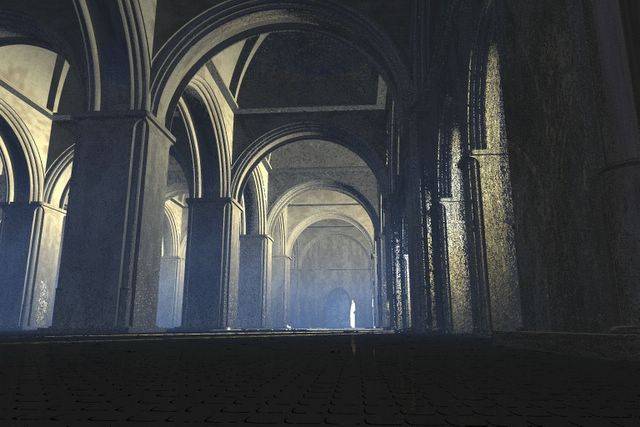 You can spend your life trying to fathom out the meaning of life and end up just getting hopelessly bogged down in religious dogma, metaphysics, rationalist philosophy or flimsy spiritual eclecticism. Sometimes all of them at the same time. Searching for the meaning of life is a great way of flexing your rhetorical muscle and limbering up your mental faculties but, trust me, it’s a futile pursuit. If the whole history of human discovery has failed to produce a formulation for the meaning of life, don’t expect that you’ll be able to do it merely by bringing your own unique perspective to the task. It's one of the first lessons you learn down here in Tartarus Central - there are many futile pursuits that pose as being more profound and substantial than they really are.
You can spend your life trying to fathom out the meaning of life and end up just getting hopelessly bogged down in religious dogma, metaphysics, rationalist philosophy or flimsy spiritual eclecticism. Sometimes all of them at the same time. Searching for the meaning of life is a great way of flexing your rhetorical muscle and limbering up your mental faculties but, trust me, it’s a futile pursuit. If the whole history of human discovery has failed to produce a formulation for the meaning of life, don’t expect that you’ll be able to do it merely by bringing your own unique perspective to the task. It's one of the first lessons you learn down here in Tartarus Central - there are many futile pursuits that pose as being more profound and substantial than they really are.But just because we can’t nail down the meaning of life doesn’t mean that life itself has no purpose. Perhaps the distinction is slight. You could argue that the purpose defines the meaning or, alternatively, that the meaning is implicit in the purpose. But I like to keep a distinction. It avoids any need to get into a wider and subjective metaphysical argument.
So what is the purpose of life? Well in the case of a human, I would posit that it is to strive to become a better human being. It’s that simple. I can’t claim to have come up with this aphorism myself - I heard it first on a radio discussion program. One of the contributors to the discussion, the exact topic of which I cannot now recall, was a nun from some obscure and none too dogmatic branch of Catholicism. She claimed that this was the purpose of life - too become a better human being.
The reason that I like this definition is that it is both simple and practical. It contains within itself a moral reference model that needs no external validation. For every action we take we can ask ourselves, “does this make me a better human-being”? If the answer is yes then we continue, if the answer is no then we either choose again or proceed with the knowledge that this choice is not the best we could make, it does not serve the purpose of our existence. So, we could ask, does sitting in front of television make me a better human being? Does punching this annoying drunk make me a better person? Does going to work make me a better human being? How about taking a walk, writing a book, reading a newspaper or reading a book, playing with your children or playing the piano, creating a blog? Everything you do suddenly has a moral dimension. Making the judgement about what is improving and what is not is also, more often than not, intuitively simple.
Of course we could get into a long discussion about what we mean by a “better human being” and, if it is possible to misjudge what this means, then there could be some unfortunate consequences to following this approach. I mean, for example, that from a physical mechanistic and evolutionary standpoint we may judge the better human being as the one who is selfish, aggressive and asserts its dominance on those around them. However I believe that it would be commonly accepted that humanity’s greatest achievements have not been in the sphere of physical dominance, that this is not the defining characteristic of being human -although, if we’re not careful this line of discussion could lead us into the muddy waters of Cartesian dualism that will also prove ultimately unhelpful.






